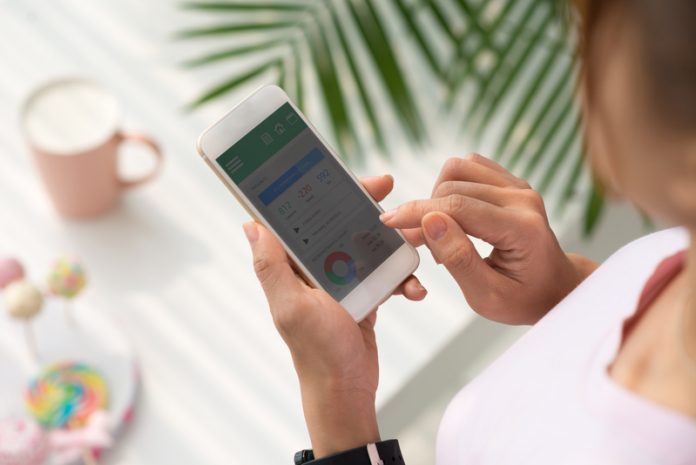Terje Peetso, MD, Policy Officer for DG CONNECT at the European Commission discusses how online healthcare can be beneficial to patients…
Citizens’ participation in managing their own healthcare has consistently increased over the last decades and digital tools certainly play an important role in this. The process consists of a and information; use of technological tools for monitoring and getting professional guidance; the creation of personal health records; active participation in all steps of healthcare path – from prevention to rehabilitation with making necessary inputs and accepting the need for changes.
Today, the internet is most often used as a source of health related information and according to the Eurobarometer on digital health literacy of 2014,1 over three-quarters of respondents (77%) agree that the internet is a good tool for improving their knowledge of health-related topics. Another valuable characteristic of the internet is that it allows people to access their health records outside of healthcare settings. Both of these aspects need to be carefully addressed.
Some websites can significantly improve people’s health literacy and help them to better understand their medical condition. At the same time it is important that information comes from a trustworthy source. As most of us use search engines for finding an answer to our health questions, a certain level of health knowledge is required, not only for understanding information provided on a website, but also for assessing its credibility. Horizon 2020 is going to fund projects that aim at improving digital health literacy using online courses with open access to all citizens, including children and the elderly and high-risk patient groups.2
With regards to how citizens’ access their electronic health records (EHR), there is still a lot to be done. According to the “overview of the national laws on electronic health records in the EU”3, only 14 Member States grant patients full access to their EHRs. Among the countries which do not allow patients to access all the content, the typical reason is that access could cause harm to the patient. However, the Competitiveness and Innovation Framework Programme (CIP) project SUSTAINS evaluated in many Member States, the impact of eHealth tools to patient empowerment 4 which demonstrated that patients are expecting to have full access, and do not find any kind of information about their own medical condition being harmful. On the contrary, for example the Swedish patient associations strongly argued for patient choice regarding a respite of 14 days before a health record entry is visible to the patient. During the implementation of the SUSTAINS project resistance among physicians gradually decreased and healthcare professionals saw more opportunities and advantages with the e-services compared to the beginning of the project. My health data is about me and my health and I would like to know everything about this as soon as possible. It is much easier to handle difficult information together with friends and family and then go to see a doctor with prepared questions and avoid emotional reactions that would prevent meaningful discussion about treatment options.
The importance of this issue is highlighted in the Patients’ Charter on Patient Empowerment – “Patients have the right to receive information they need and want, in the right amount and format and at the right time, in simple enough language to enable them to make choices according to their wishes “.5
The use of mobile health and wellbeing apps is becoming more and more popular and new apps and innovative solutions are coming out every day. While today health and fitness apps are one of the fastest growing categories, a lot is also happening in the area of medical apps, many of which aim at helping people to overcome acute diseases, as well as effectively cope with chronic diseases. Of course, the use of both types of apps requires a good level of health literacy and it adds valuable information to our health record. For example, a simple measurement of steps can first of all remind us about the importance of physical activity, but at the same time it can provide valuable information about the status of our health with different medical conditions e.g. with mental diseases, where a decrease in physical activity may be one of the early symptoms and may provide useful information for healthcare professionals. As validity and reliability of the data that health apps collect and process is essential, the Commission has set up a working group to develop guidelines for assessing the issue. Twenty members from civil society, research and industry organisations plus Member States’ government representatives participate in the working group6. The guidelines are expected to be published by the end of this year.
How eHealth can support patients in health and care management will be thoroughly discussed at the eHealth Week 2016 in Amsterdam on 8-10 June organised by the Dutch Ministry of Health as part of the Dutch Presidency of the Council of the European Union, the European Commission and HIMSS Europe7.
Disclaimer: This paper expresses the personal views of the author and in no way constitutes a formal/official position of the European Commission.
1 http://ec.europa.eu/public_opinion/flash/fl_404_en.pdf
3 http://ec.europa.eu/health/ehealth/docs/laws_report_recommendations_en.pdf
4 http://www.sustainsproject.eu/
5 http://www.eu-patient.eu/globalassets/campaign-patient-empowerment/charter/epf_pe_charter_110316.pdf
7 http://www.ehealthweek.org/ehome/index.php?eventid=128630&
Terje Peetso, MD
Policy officer – Unit H1 – Health and wellbeing
Directorate-General Communications Networks,
Content and Technology (DG CONNECT) – European
Commission
terje.peetso@ec.europa.eu











